Key Takeaways
- Essential oils provide a safe, natural alternative to chemical mosquito repellents.
- Citronella, lemon eucalyptus, lavender, peppermint, tea tree, and cinnamon oils are among the most effective mosquito repellents.
- Proper dilution and safe usage practices are critical when using essential oils.
- Combining different oils can enhance their repellent effectiveness.
- Practical household measures can greatly reduce mosquito attraction and complement essential oil usage.
 Mosquitoes are more than just a nuisance; they pose significant health risks, such as transmitting West Nile Virus, Zika Virus, and other mosquito-borne illnesses prevalent in the United States. As families seek safer, chemical-free methods to keep mosquitoes away, essential oils have emerged as a popular natural alternative.
This comprehensive guide explores scientifically backed essential oils that repel mosquitoes, how to use them correctly, and the best methods to integrate them into your daily life.
Mosquitoes are more than just a nuisance; they pose significant health risks, such as transmitting West Nile Virus, Zika Virus, and other mosquito-borne illnesses prevalent in the United States. As families seek safer, chemical-free methods to keep mosquitoes away, essential oils have emerged as a popular natural alternative.
This comprehensive guide explores scientifically backed essential oils that repel mosquitoes, how to use them correctly, and the best methods to integrate them into your daily life.
Why Choose Essential Oils for Mosquito Repellents?
Many commercial mosquito repellents contain chemicals like DEET, which can cause skin irritation, allergic reactions, and are concerning for young children and pets. Essential oils, derived from plants, provide a safer, natural alternative that effectively deters mosquitoes without harsh side effects. They not only repel insects but also offer aromatherapy benefits, creating a more relaxing and pleasant home environment.Most Effective Essential Oils to Repel Mosquitoes
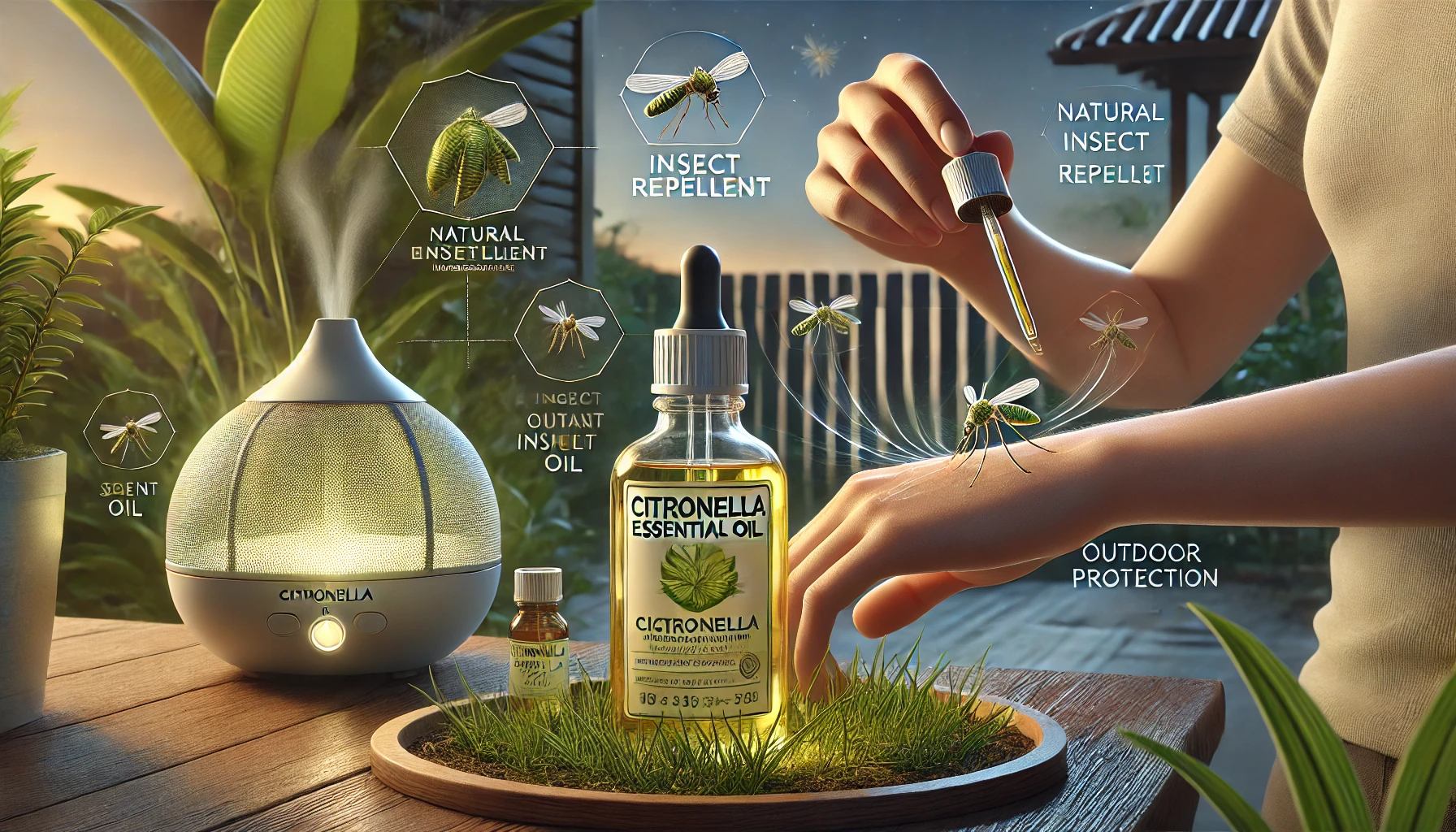

Not getting a solution?
Get your free pest control estimate today!Citronella Oil
- Citronella is perhaps the most famous natural mosquito repellent. Extracted from lemongrass, it masks scents that mosquitoes find attractive, making it difficult for them to detect their human targets.
-
What it Does: Citronella is a well-known natural mosquito repellent. It masks scents mosquitoes use to locate humans.
-
Best Use: Candles, diffusers, and outdoor torches—great for patios and outdoor events.
-
Effectiveness: Provides short-term protection of up to two hours.
-
Additional Benefits: Pleasant citrus aroma that enhances outdoor ambiance.

Lemon Eucalyptus Oil
- Endorsed by the Centers for Disease Control and Prevention (CDC), lemon eucalyptus oil contains para-menthane-3,8-diol (PMD), proven highly effective against mosquitoes. It is one of the few natural solutions recommended by health authorities.
-
Best Use: Ideal in sprays and topical lotions for direct skin application.
-
Effectiveness: Provides up to 6 hours of mosquito protection.
-
Additional Benefits: Invigorating and pleasant scent makes it enjoyable to use.
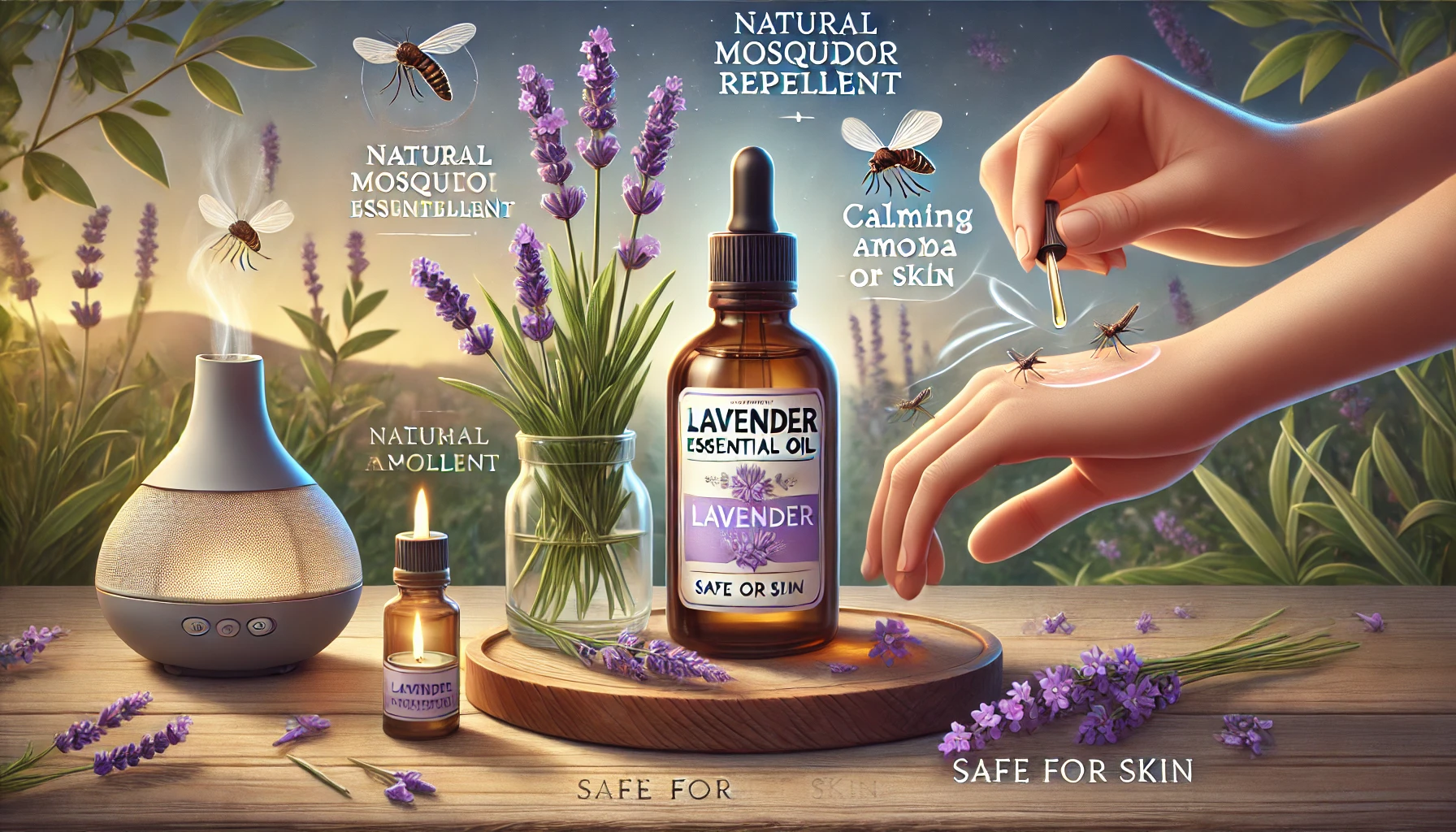
Lavender Oil
- Lavender oil not only repels mosquitoes but also provides calming effects, making it ideal for bed time use or relaxation periods.
-
Best Use: Perfect for diffusers, topical lotions, and sprays.
-
Effectiveness: Provides protection for about two hours.
-
Additional Benefits: Promotes better sleep, reduces stress, and eases anxiety.
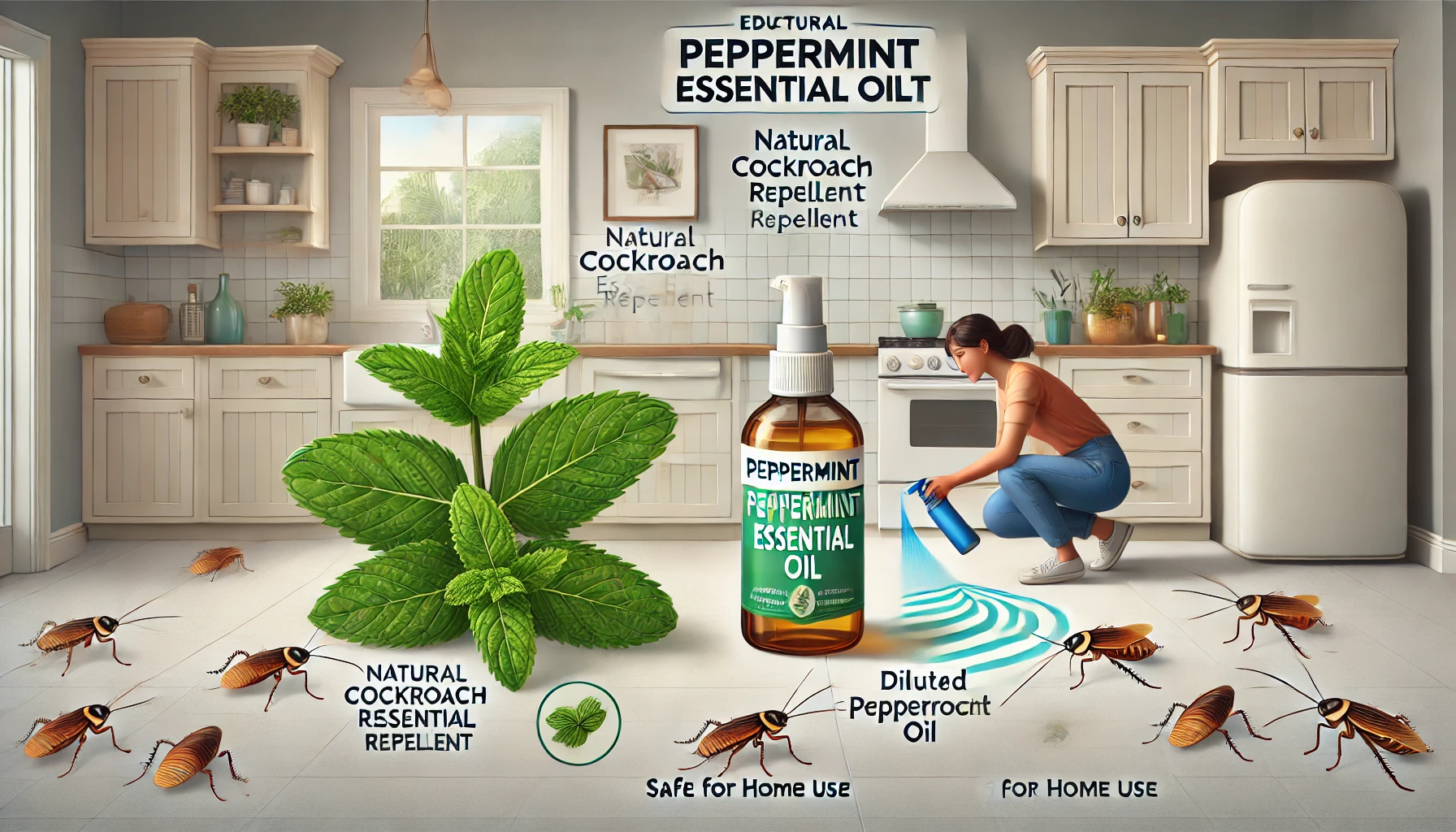
Peppermint Oil
- Mosquitoes strongly dislike the scent of peppermint, making it an effective and refreshing repellent. Its strong menthol fragrance disrupts mosquito orientation, preventing them from landing.
-
Best Use: Effective in sprays and diffusers, especially near doors and windows.
-
Effectiveness: Ideal for short outdoor exposure or indoor use near entry points.
-
Additional Benefits: Delivers a cooling sensation—great for hot summer days.

Tea Tree Oil
- Tea tree oil, known for its antiseptic and antimicrobial properties, doubles as an effective mosquito deterrent.
-
Best Use: Apply topically when diluted in a carrier oil for safe skin application.
-
Effectiveness: Offers several hours of protection and relief when applied directly.
-
Additional Benefits: Reduces inflammation and soothes existing bites or skin irritations.

Cinnamon Oil
- Cinnamon oil is surprisingly effective against mosquitoes due to its strong scent, which disrupts mosquito behavior and prevents them from identifying their targets.
-
Best Use: Ideal for diffusers, homemade candles, or diluted sprays indoors and out.
-
Effectiveness: Works well but needs frequent reapplication for sustained protection.
-
Additional Benefits: Emits a warm, comforting aroma that enhances indoor ambiance.
How to Use Essential Oils as Mosquito Repellents
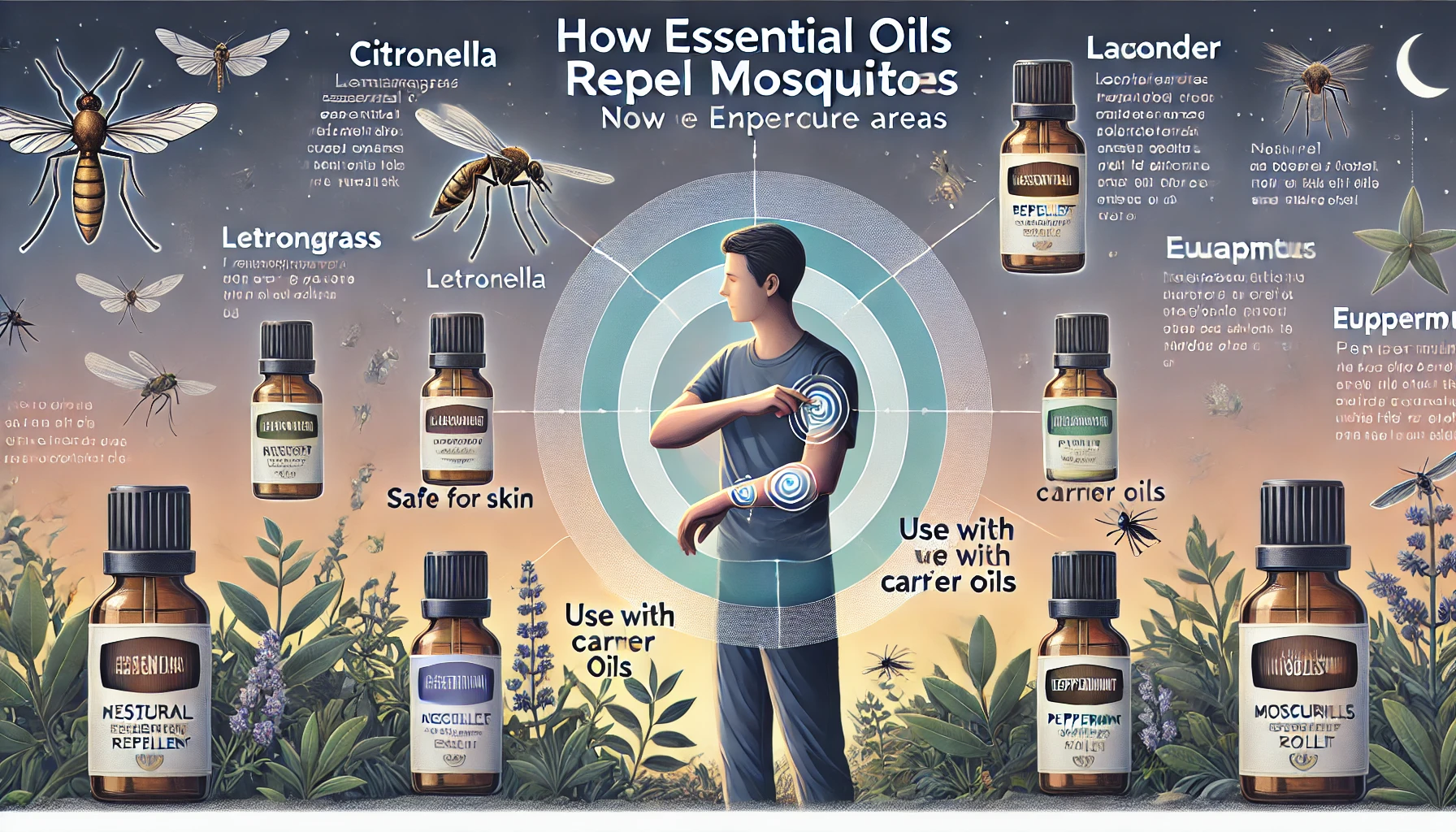 DIY Mosquito Repellent Spray
Creating your homemade mosquito spray is simple, cost-effective, and customizable:
DIY Mosquito Repellent Spray
Creating your homemade mosquito spray is simple, cost-effective, and customizable:
- Combine 10 drops lemon eucalyptus, 5 drops lavender oil, and 5 drops peppermint oil.
- Mix oils in a spray bottle with 4 ounces of distilled water.
- Add a tablespoon of witch hazel or alcohol to help oils disperse evenly.
- Shake well before each use and apply generously on exposed skin and clothing.
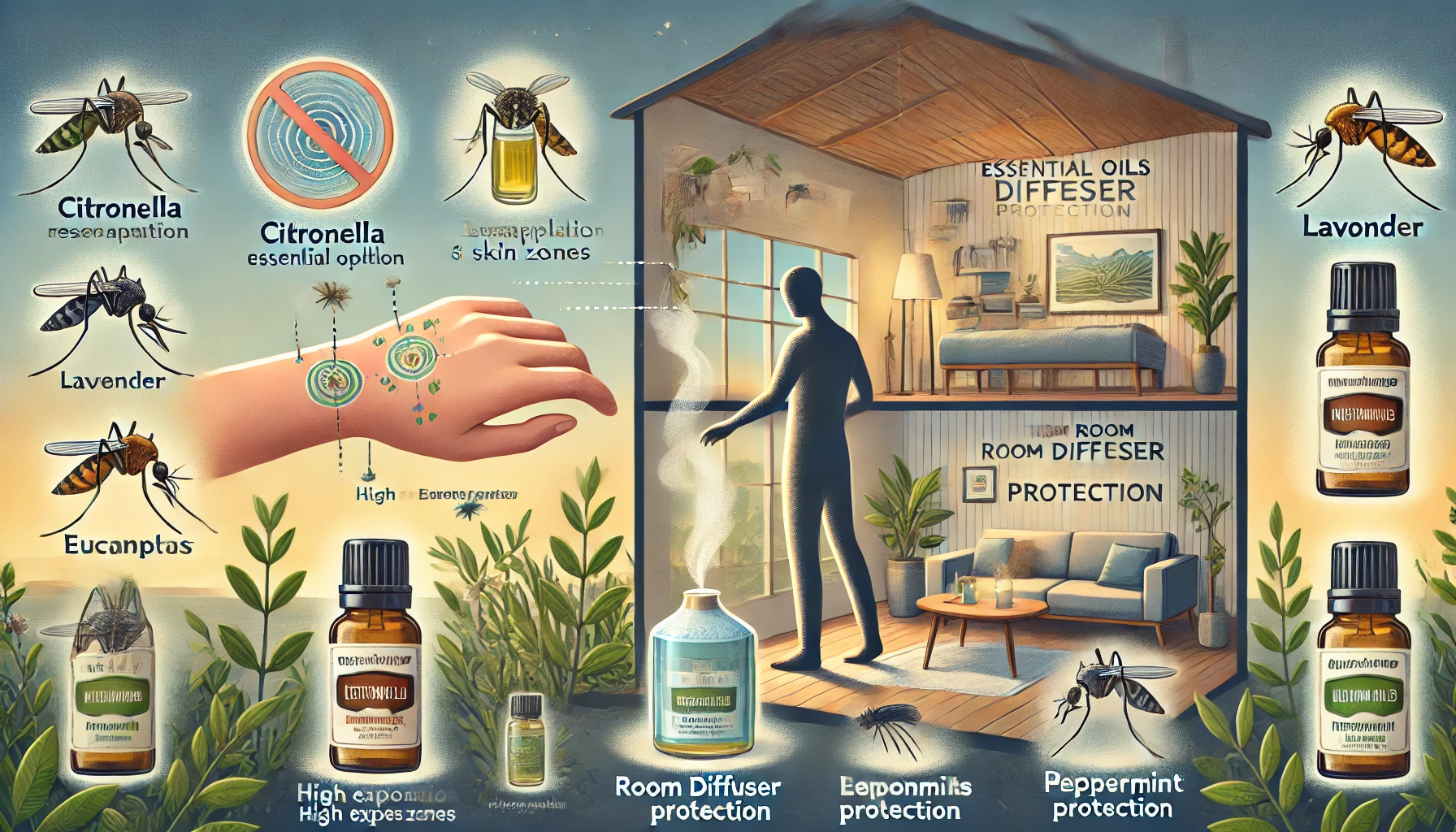 Essential Oil Diffusers
Using diffusers indoors helps maintain a mosquito-free home environment consistently:
Essential Oil Diffusers
Using diffusers indoors helps maintain a mosquito-free home environment consistently:
- Add a few drops of citronella or lavender oil to an ultrasonic diffuser.
- Place diffusers near windows, doors, and living areas to repel mosquitoes effectively.
- Run diffusers in bedrooms to ensure a restful, mosquito-free sleep.
- Combine 10 drops tea tree or lemon eucalyptus oil with one ounce of carrier oil.
- Apply gently to exposed skin, avoiding sensitive areas and eyes.
- Reapply every few hours as needed, especially during peak mosquito activity.
- Light citronella candles or torches about 20-30 minutes before outdoor activities.
- Position strategically around seating areas to create an effective mosquito barrier.
- Use multiple candles or torches for larger spaces to enhance their effectiveness.

Safety Precautions When Using Essential Oils
- While essential oils are natural, they are highly concentrated and must be used cautiously to avoid any adverse reactions:
-
Patch Test: Always perform a skin patch test before full application to ensure no allergic reactions occur.
-
Dilution: Essential oils should never be applied directly to the skin without dilution in a carrier oil.
-
Pets and Children: Consult a veterinarian or pediatrician before using oils around pets or young children, as some oils can be harmful.
-
Storage: Keep oils in dark, airtight containers away from sunlight and heat to preserve their effectiveness.
Combining Essential Oils for Enhanced Effectiveness
- Combining various essential oils creates a more potent mosquito repellent, enhancing both duration and strength:
-
Citronella & Peppermint: Offers stronger and longer-lasting protection outdoors by masking scents and confusing mosquitoes.
-
Lavender & Lemon Eucalyptus: Combines calming effects with powerful mosquito repelling properties, making it ideal for evening use or bedtime.
-
Tea Tree & Cinnamon: Creates a strong repellent with added antiseptic benefits—perfect for both indoor and outdoor applications.

Enhancing Your Home to Reduce Mosquito Attraction
- Essential oils work best when combined with proactive household measures:
-
Remove Standing Water: Regularly empty items like birdbaths, pots, and gutters to eliminate mosquito breeding spots.
-
Install Screens: Ensure all doors and windows have secure screens to prevent mosquitoes from entering your home.
-
Plant Mosquito-Repellent Plants: Use citronella, marigold, lavender, and basil in your garden and near entrances to help deter mosquitoes naturally.
-
Use Fans: Outdoor fans disrupt mosquito flight patterns, reducing their presence during gatherings and patio time.
Visit our Species, Control, and DIY Guide sections for additional resources on mosquitoes and ways to tackle a mosquitoes infestation.





